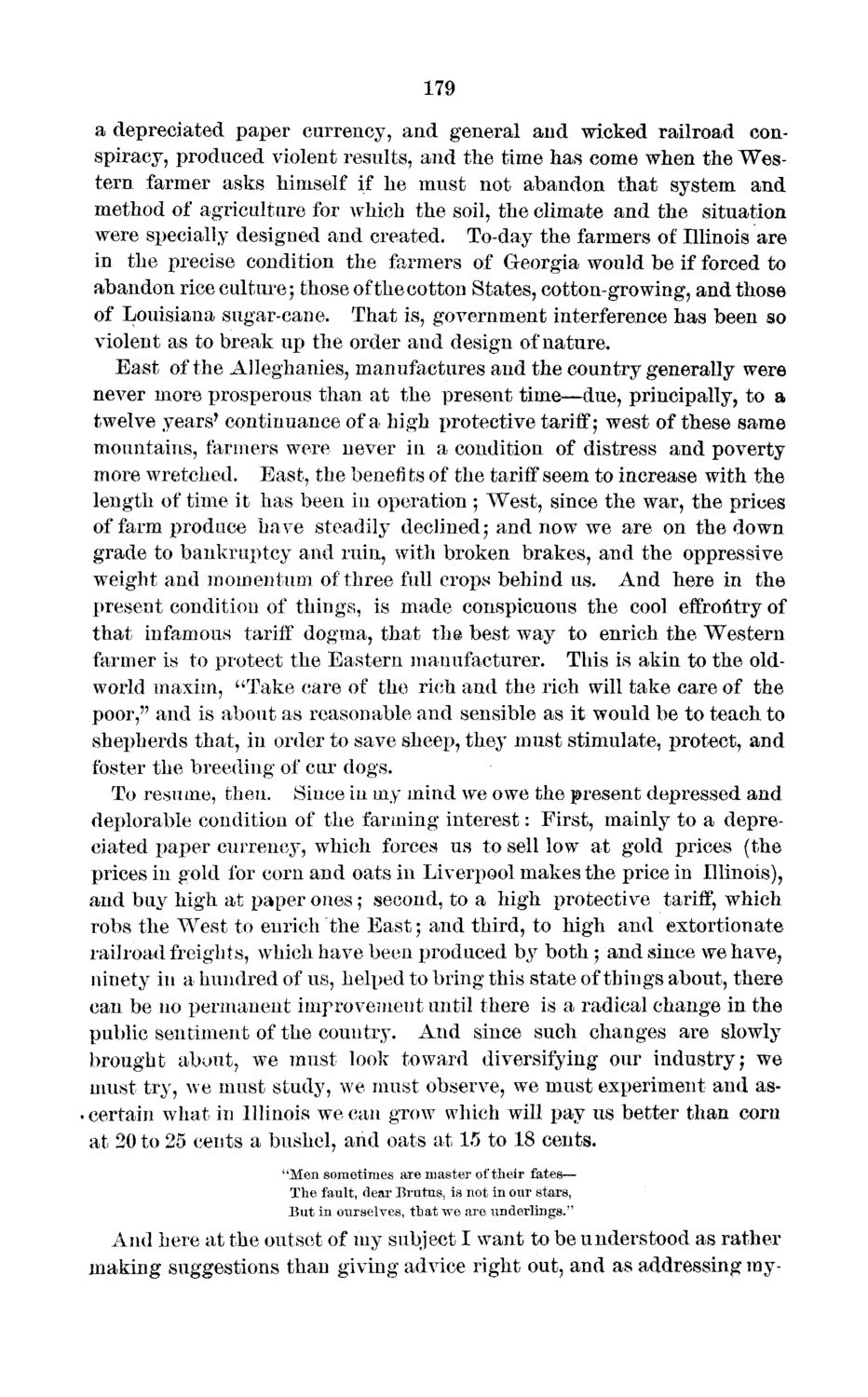| |
| |
Caption: Board of Trustees Minutes - 1873
This is a reduced-resolution page image for fast online browsing.

EXTRACTED TEXT FROM PAGE:
179 a depreciated paper currency, and general and wicked railroad conspiracy, produced violent results, and the time has come when the Western farmer asks himself if he must not abandon that system and method of agriculture for which the soil, the climate and the situation were specially designed and created. To-day the farmers of Illinois are in the precise condition the farmers of Georgia would be if forced to abandon rice culture; those of the cotton States, cotton-growing, and those of Louisiana sugar-cane. That is, government interference has been so violent as to break up the order and design of nature. East of the Alleghanies, manufactures and the country generally were never more prosperous than at the present time—due, principally, to a twelve years* continuance of a high protective tariff,- west of these same mountains, farmers were never in a condition of distress and poverty more wretched. East, the benef] ts of the tariff seem to increase with the length of time it has been in operation ; West, since the war, the prices of farm produce have steadily declined; and now we are on the down grade to bankruptcy and ruin, with broken brakes, and the oppressive weight and momentum of three full crops behind us. And here in the present condition of things, is made conspicuous the cool effroritry of that infamous tariff dogma, that the best way to enrich the Western farmer is to protect the Eastern manufacturer. This is akin to the oldworld maxim, "Take care of the rich and the rich will take care of the poor,'7 and is about as reasonable and sensible as it would be to teach to shepherds that, in order to save sheep, they must stimulate, protect, and foster the breeding of cur dogs. To resume, then. Since in iny mind we owe the present depressed and deplorable condition of the farming interest: First, mainly to a depreciated paper currency, which forces us to sell low at gold prices (the prices in gold for corn and oats in Liverpool makes the price in Illinois), and buy high at paper ones; second, to a high protective tariff, which robs the West to enrich the East; and third, to high and extortionate railroad freights, which have been x>roduced by both ; and since we have ? ninety in a hundred of us, helped to bring this state of things about, there can be no permanent improvement until there is a radical change in the public sentiment of the country. And since such changes are slowly brought about, we must look toward diversifying our industry; we must try, we must study, we must observe, we must experiment and ascertain what in Illinois we can grow which will pay us better than corn at 20 to 25 cents a bushel, and oats at 15 to 18 cents. "Men sometimes are master of their fates— The fault, dear Brutus, is not in our stars, But in ourselves, that we are underlings." And here at the outset of my subject I want to be understood as rather making suggestions than giving advice right out, and as addressing ray-
| |